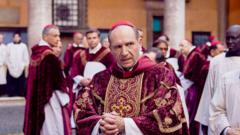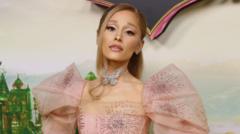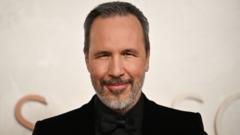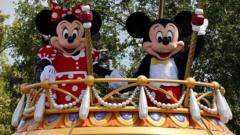In May 2024, the world will witness a pivotal moment in the Roman Catholic Church as 134 cardinals gather in the Sistine Chapel to elect a successor to Pope Francis. This process, steeped in centuries-old tradition, has captured public fascination partly due to the recent film Conclave, which sheds light on the often obscure and secretive nature of the papal election.
The film, acclaimed for its in-depth narrative and strong performances, introduces audiences to the closed environment of the conclave—a setting where cardinals are isolated from the outside world for prayer and deliberation. While they are not entirely cut off, as logistical needs must be met, the isolation serves to minimize external influences as each cardinal seeks divine inspiration for their voting decisions.
Adapted from Robert Harris's best-selling novel, Conclave presents a dramatic portrayal of the intense responsibility faced by the cardinal-electors. Many, like theology expert Anna Rowlands, note that the film's depiction of this isolation creates an introspective and serious atmosphere, reflecting the grave weight of their task. The decision-making process is not solely spiritual, as political maneuvering and personal ambitions often come into play, amplifying the tension inherent in the discrete deliberations.
Audiences witness a blend of intense personal debates and strategic discussions among cardinals as they navigate various biases and agendas during the lead-up to casting their votes. The film illustrates how jockeying for position—often initiated well before the conclave begins—shapes the outcome and impacts relationships formed in this unique chamber.
However, some aspects portrayed in Conclave, such as the sudden rise of an unknown cardinal, differ from reality. The existing pool of cardinal-electors has been carefully curated by previous papal appointments, predominantly influenced by Pope Francis's diverse vision of church leadership. With most cardinals having been appointed in the last twelve years, the electorate’s composition brings considerable unpredictability to the election outcome.
Nonetheless, the film does an exceptional job at humanizing the cardinals, showcasing their vulnerabilities and internal conflicts—experiences that resonate deeply beyond their clerical roles. Director Edward Berger aims to bridge ancient customs with modern sensibilities by illuminating the personal challenges and fallibility shared by all humans, regardless of status or position.
Conclave serves not only as a thrilling cinematic experience but also as a reflection of the very essence of what the papal election entails—a deeply human endeavor infused with divine purpose, drawn from the rich, complex tapestry of our global community. The upcoming conclave promises to be a historic moment as cardinals grapple with both faith and politics in a transformative era for the Catholic Church.
The film, acclaimed for its in-depth narrative and strong performances, introduces audiences to the closed environment of the conclave—a setting where cardinals are isolated from the outside world for prayer and deliberation. While they are not entirely cut off, as logistical needs must be met, the isolation serves to minimize external influences as each cardinal seeks divine inspiration for their voting decisions.
Adapted from Robert Harris's best-selling novel, Conclave presents a dramatic portrayal of the intense responsibility faced by the cardinal-electors. Many, like theology expert Anna Rowlands, note that the film's depiction of this isolation creates an introspective and serious atmosphere, reflecting the grave weight of their task. The decision-making process is not solely spiritual, as political maneuvering and personal ambitions often come into play, amplifying the tension inherent in the discrete deliberations.
Audiences witness a blend of intense personal debates and strategic discussions among cardinals as they navigate various biases and agendas during the lead-up to casting their votes. The film illustrates how jockeying for position—often initiated well before the conclave begins—shapes the outcome and impacts relationships formed in this unique chamber.
However, some aspects portrayed in Conclave, such as the sudden rise of an unknown cardinal, differ from reality. The existing pool of cardinal-electors has been carefully curated by previous papal appointments, predominantly influenced by Pope Francis's diverse vision of church leadership. With most cardinals having been appointed in the last twelve years, the electorate’s composition brings considerable unpredictability to the election outcome.
Nonetheless, the film does an exceptional job at humanizing the cardinals, showcasing their vulnerabilities and internal conflicts—experiences that resonate deeply beyond their clerical roles. Director Edward Berger aims to bridge ancient customs with modern sensibilities by illuminating the personal challenges and fallibility shared by all humans, regardless of status or position.
Conclave serves not only as a thrilling cinematic experience but also as a reflection of the very essence of what the papal election entails—a deeply human endeavor infused with divine purpose, drawn from the rich, complex tapestry of our global community. The upcoming conclave promises to be a historic moment as cardinals grapple with both faith and politics in a transformative era for the Catholic Church.





















